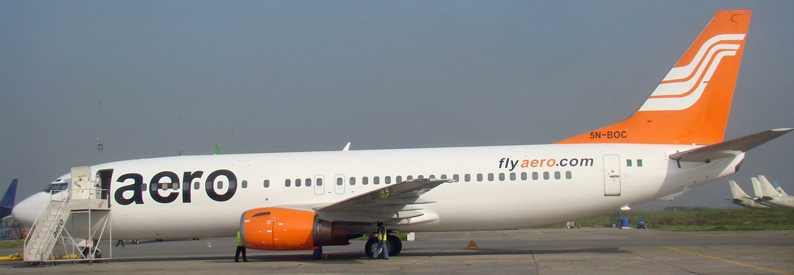Nigerian Airlines Struggle with High Interest Rates

Nigerian airlines are contending with a severe financial strain as soaring interest rates push many carriers and their suppliers to the brink, warns Ado Sanusi, Chief Executive Officer of Aero Contractors (N2, Lagos). According to recent local media reports, Sanusi expressed deep concern over the unsustainable cost of borrowing, cautioning that no airline could realistically survive in such a burdensome financial environment. Instead of encouraging growth and stability, the current interest rates—ranging from 33% to 35%—appear to be stifling the domestic aviation industry, threatening to reverse gains achieved under international agreements like the Cape Town Convention.
Sanusi emphasized the dire consequences of these excessive interest rates, pointing out that high borrowing costs have placed a stranglehold on the profitability and viability of Nigerian carriers. As operating expenses climb, airlines struggle to repay loans and still generate profits, making it increasingly challenging to upgrade fleets, invest in new routes, or maintain safety standards. Even suppliers and vendors, which form the backbone of the aviation support network, have been forced to secure financing at similarly steep rates. According to Sanusi, around 90% of Aero Contractors’ partners grapple with these inflated borrowing costs, translating into increased operational expenses and ultimately affecting ticket prices and service quality.
The Aero Contractors CEO also urged the government to streamline the multiple fees and levies imposed on carriers. He advocates consolidating these charges into a single, more manageable sum. Current regulations allow for the collection of various charges such as ticket sales fees, en route and terminal charges, and fuel surcharges by different authorities. This fragmented approach amplifies the financial burden on airlines and reduces the predictability needed for stable operations. Sanusi’s calls for consolidation align with the broader industry sentiment that rationalizing fees could encourage growth and investment, rather than forcing airlines to operate with razor-thin margins.
Further intensifying the crisis is a proposed 600% increase in ground handling charges, a move Sanusi strongly opposes. Such a substantial hike in operational fees would further erode airlines’ financial footing. The situation is so serious that the acting Director-General of the Nigerian Civil Aviation Authority (NCAA), Chris Najomo, recently warned that the entire Nigerian airline industry risks collapse under the weight of these financial and regulatory pressures. Multiple taxation, an unfavorable operating environment, and restricted access to affordable financing are driving carriers toward financial peril, making it increasingly difficult for airlines to remain competitive in both domestic and international markets.
These issues are not limited to the aviation sector. In August, multiple Nigerian businesses criticized the country’s lending environment. The Manufacturers Association of Nigeria revealed that commercial banks charged average maximum lending rates of 35% to its members in the second quarter of 2024. Meanwhile, data from the Central Bank of Nigeria indicates that prime interest rates for the transportation sector hover between 25% and 30%, with the nation’s benchmark lending rate at 27.5%.
In essence, the Nigerian aviation industry faces a precarious future. Without immediate and meaningful intervention—such as reducing interest rates, consolidating aviation charges, and preventing drastic increases in operational fees—the high cost of financing could cripple the country’s airlines, undermining their ability to serve passengers, foster growth, and maintain competitive operations.
Related News : https://suspicious-zhukovsky.67-21-117-18.plesk.page/?s=Nigerian+Airlines
Sources: AirGuide Business airguide.info, bing.com, ch-aviation.com
